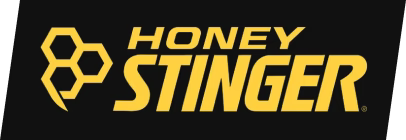Athlete Ally: Interview with Hudson Taylor

Athlete Ally is on a mission to eradicate homophobia and transphobia in sport through education, policy, athlete activism, and research.
This May, we were lucky enough to host Hudson Taylor, Founder and Executive Director, at Honey Stinger HQ and learn more about how the non-profit is activating the athletic community to champion LGBTQ equality in sport.
About Hudson Taylor
Taylor grew up in wrestling in New Jersey and went on to wrestle at the University of Maryland, where he was a three-time all-American. It opened doors for him, allowed him to make friends, and gave him personal confidence. He was also a member of theater arts, where he noticed his LGBTQ friends were treated with respect and inclusivity, as opposed to the wrestling teams, where there was regular homophobic and sexist language. In his senior season he wore an LGBTQ equality sticker on his headgear to show support as an ally, and in response received about 2,000 emails from closeted athletes who gained confidence because of his gesture.

The idea that a wrestler could make that kind of an impact for such a small gesture made Taylor realize that if he had been a football player, team, or league speaking out, that impact would have been much more significant. And this moment was the genesis of Athlete Ally.
Positive Experiences
Taylor hosts trainings and visits different institutions to speak about Athlete Ally.
“My experiences and reactions are always positive.” He states, “Nobody wants to make somebody’s experience unsafe, and nobody wants somebody to feel isolated (and) excluded.”
Knowing the biggest challenge for many is finding the time to learn about inclusiveness in sports, Taylor creates tangible, actionable takeaways, and arms attendees with the right information to take with them for future conversations. He also creates data-driven resources, like the Athletic Equality Index.
Athlete Equality Index (AEI)
The Athletic Equality Index was started by Athlete Ally in 2017. It is a measurement of LGBTQ-inclusive policies and practices across division one athletics. Each year, 353 division one NCAA institutions are each assigned a score.
“There are four policies and four practices that we’re measuring including - looking at a nondiscrimination policy, is it LGBTQ inclusive, a fan code of conduct, a sexual harassment policy, and a trans inclusion policy?”. “We try to use AEI to help create a clear roadmap, for how an institution could better show up for the full diversity of their constituents.”
AEI has been a powerful tool because Taylor has found that with transparency comes accountability.
Athlete Ally’s Most Significant Victory
Around the 2014 Winter Olympics, Athlete Ally led the Principal Six Campaign. At the time, the Sochi Winter Olympics were happening in Russia, and Russia had passed an anti-gay propaganda law, where people could be punished by fines or arrested for supporting the LGBTQ community.
“As someone who feels like every athlete should be able to use their platform to affect change in the world, these policies did not sit well with me. So we looked at the sixth principle of the Olympic Charter, which was the nondiscrimination clause, and built this campaign around it, which was the discrimination of any kind and is incompatible with belonging to the Olympic movement.”
Ultimately, this campaign resulted in sexual orientation being added to the Olympic charter's nondiscrimination clause and built into the bidding process for all future games.
How to start with LGBTQ allyship
Hudson encourages people to start with themselves and their own communities.
“Allyship always starts within whatever kind of change we want to see in the world. So we first have to create that change inside ourselves. As an athlete, you have complete control over how you behave, how you show up in the world, and how you treat people.”
The first thing to consider is how our language and behavior might make the people around us feel they must conceal or hide who they are. He encourages everyone to become more conscious of what language and behavior that might be. Ultimately, he believes if we could start with that basic level of word consciousness and be more thoughtful of how we speak to and about one another, a lot of good work can happen.
Visit the Athlete Ally website to learn more about the organization and its mission.











